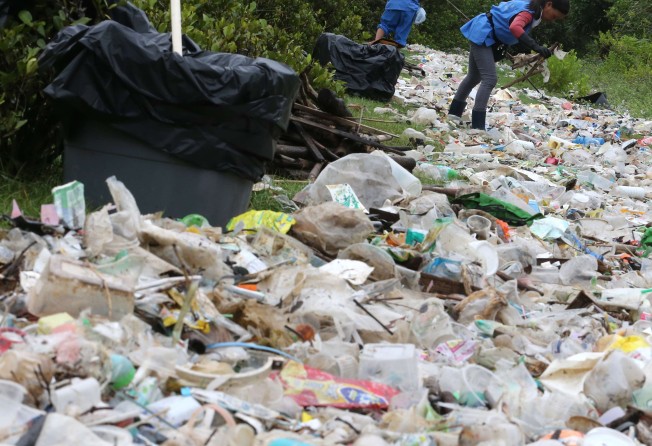Refuse problem made worse, because waste is not waterproofed

For as long as the government has tracked data on marine refuse, it shows that during the rainy season, the weight of marine refuse collected from the seas and shores increases.
The latest increase in floating rubbish washing onto Hong Kong shores has been linked by the government with the recent extreme rain events throughout the region.
The relationship is plausible. Rainwater washes floating debris left on the land into drains, culverts, streams and rivers, and on to the open seas.
Extreme rain also causes flooding which dislodges debris and again this will flow to the sea. So what to do next? First of all, let’s not blame the rain and climate change.
The Pearl River Delta has (for a very long period) had a subtropical climate with rainy seasons. Repeated sudden deluges of large amounts of water have been a fact of life for many centuries. Climate change is predicted to result in fewer rain days but an increase in the average rainfall intensity.
Others blame consumerism and our lifestyle, especially the shift to packaged food distribution, and one-off serving containers for meals and drinks.
While correctly pointing out that behaviour changes can significantly reduce the volumes of waste produced in this region with rapid urbanisation, rise in income and the feeding of millions of workers, it does not address the cause of floating marine refuse. This can only be addressed by fixing the structural problem of poorly contained rubbish lying on land.
The coastal dump site at the island of Wei Ling Ding is not the only one along the coast and rivers of the mainland and Hong Kong. Look no further than the villages and brownfields of the New Territories, or look around Hong Kong Island, and discover how much rubbish lies open and exposed to rain at the government’s refuse collection points.
Add to that the illegal dumping, including medical waste, by unscrupulous collectors of hazardous waste. By all means, the government should model sea currents to try and pinpoint the source of the recent upsurge in floating waste, but we should not waste time.
With years of evidence of increases in marine refuse during the rainy seasons we can safely agree on the general narrative: we need to waterproof our waste handling from consumers to waste processors, both in Hong Kong and China. And with climate scientists predicting more extreme rainfall, we need to do this sooner rather than later.
Paul Zimmerman, CEO, Designing Hong Kong